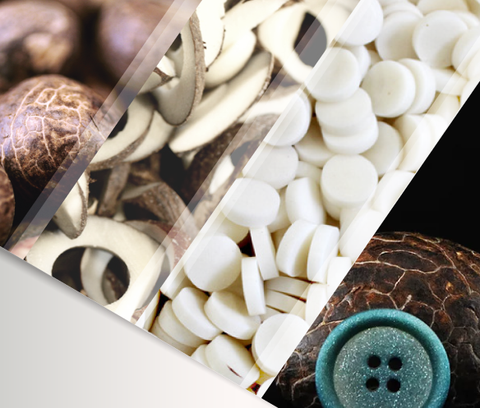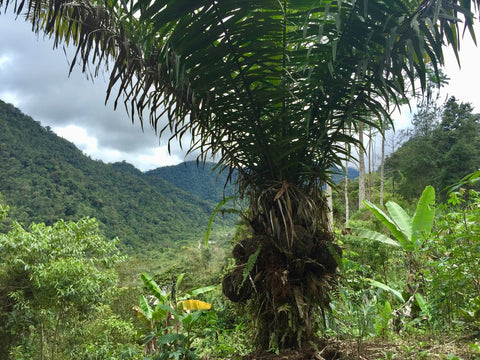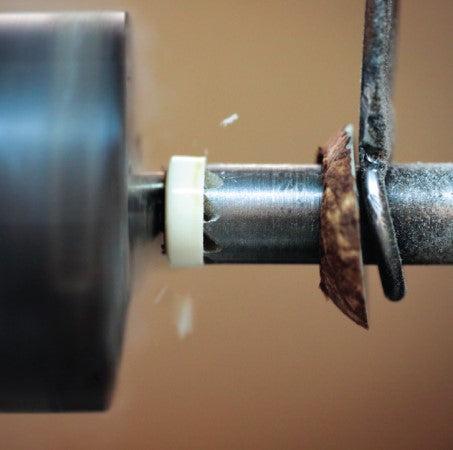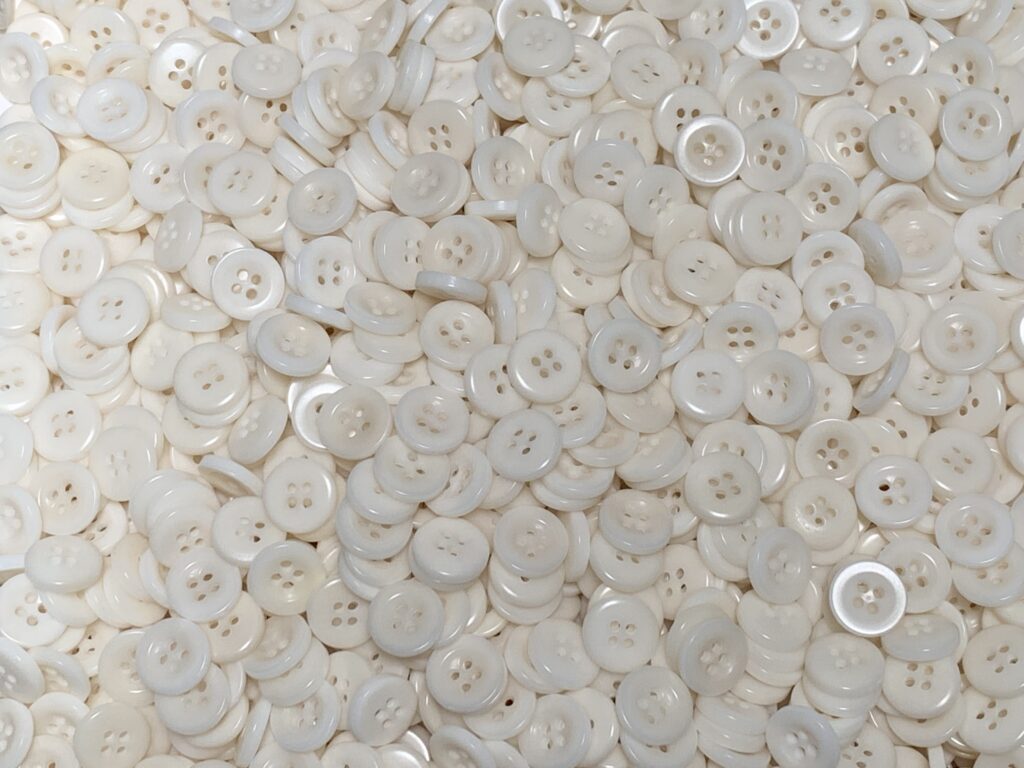The way in which we live our lives has a huge impact on the world around us and at present we are really not looking after our home. Our lifestyles are driving climate change, ecological collapse and pollution at a scale never seen before, something that we all have a responsibility to change.
Low plastic recycling rates
According to an article from National Geographic, an eye watering 91% of plastic isn’t recycled! It takes 400 years for plastic to breakdown so almost all of it still exists in some form. When most people think of plastic waste, usually plastic bags, bottles and other containers spring to mind. However plastic buttons, synthetic fibres and fast fashion is a major contributor not only to plastic waste but ocean and landfill waste.

Plastic free buttons
At Wild Rose we’re trying to minimise our environmental footprint. We still have a long way to go, but are taking steps in the right direction (such as minimising the use of satin for our shirt trims and using cotton). One particular area we have been working on is our use of plastics. Historically we have used plastic buttons for our garments, but in early 2019 we decided to shift to use Corozo instead.

Plastic free alternatives
The majority of people are familiar with metal buttons as an alternative to plastic. However there is a plant based option and a lesson from history.
In the 19th century vegetable ivory was used to make buttons. Vegetable ivory as the name suggests is a natural plant based material real ivory. In the 1860’s Germany began importing Tagua seeds and quickly saw the potential of this material. Vegetable ivory also known as tagua seeds quickly become popular for making buttons, then toys, cane handles, jewellery and figurines.
Production of vegetable ivory buttons continued until the second world world. The technical innovations of the time such as Bakelite and plastics resulted in a decline in use of vegetable ivory.

What is vegetable ivory?
Vegetable ivory comes from the Tagua plant that grows in the lowland rainforests of Ecuador, Peru, Columbia and Panama.
Each Tagua plant produces up to 15 fruit clusters that are called “mococha.” Each mococha has approximately 30 seeds – known as Corozo, or Tagua Nuts. What makes them a sustainable resource is that the mococho clusters only fall from the tree when ripe. The nuts are only ready to be processed when they reach this stage of maturity, no sooner. This life cycle of the Tagua nuts prevents exploitation of this natural resource through deforestation.
After the mococho clusters fall to the forest floor, the nuts are gathered and dried in the sun for about one to two months. Once dried, they are sliced and shaped into Corozo buttons.
Corozo is a 100% natural product which is similar in consistency to a hard resin and is why it is also called vegetable ivory due to its appearance.
-

Tagua Tree -

Tagua Pods -

Tagua (Corozo) Seeds
Why are Corozo buttons a sustainable option?
- Natural Harvesting: Corozo seeds can only be collected after they fall naturally from the tree. Seeds that are picked from the palm before they fall are not ripe enough for button production. This means there’s absolutely no need for deforestation.
- Renewable Resource: It does not require the cutting-down of trees, because the buttons are made from the tree’s nut. Once mature, the Tagua nut trees can produce 15 – 25kg of nuts annually for 100 years.
- Durable Material: Corozo is made up of very tightly wound organic fibres which give our buttons excellent durability and scratch resistance.
- Natural Material: Unlike plastic buttons, Corozo buttons are biodegradable, thus helping to reduce the amount of plastic waste in the ocean and landfills.
- Local Community Job Creation: Although it represents less than 0.5% of total exports, the Tagua industry supports 30,000 Ecuadorian families.
- Incentives to Protect The Rainforest: Natural rain forest products such as corozo can generate up to five times the income of banana plantations and cattle ranches, both industries that often lead to rainforest deforestation.
What are the benefits of Corozo plastic free buttons?
The Corozo or tagua seeds can be processed in several different ways. They can be cut, pressed, heated, burned, lasered, bleached, tinted and polished to incredibly shiny finishes. Corozo has a naturally elegant grain to the seed, creating a unique pattern ensuring each button is singular in appearance. 100% natural and sustainable material
- Each button has a unique natural grain
- Scratch resistant and hard wearing

Everytime you wear a garment with Corozo buttons, you are saving a tree, you are doing your part for conservation.
At Wild Rose we aim to create heritage items of clothing, pieces you’ll be proud to keep for a long time and hand down. Our use of Corozo buttons in combination with our artisan block printing method is our way of keeping centuries old traditions alive to create a stylish sustainable wardrobe.


